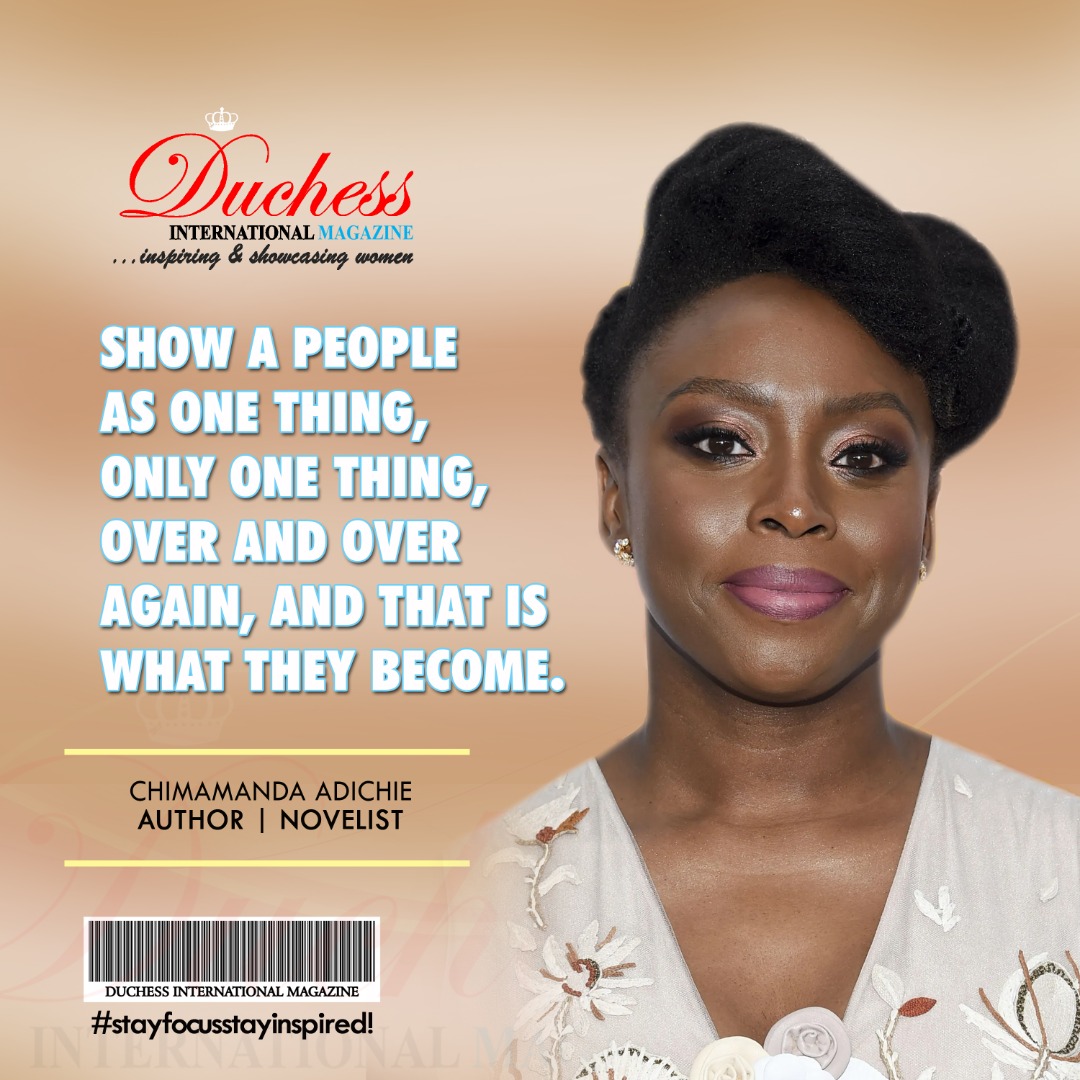The world might not be celebrating the remarkable prowess of Africans in the fields of Arts and Science, or most probably just tried to turn a blind-eye, because the African-born idea is whirling to become a global legacy. However, it is no doubt that Black people are the master crafts in any of human endeavor. Their wits towards outstanding success cum greatness is mostly second to none.
Black men and women have contributed immensely to the world of arts and sciences, thereby creating ideas from their innate and learned argots to bring innovation to different works of life. Some of them have passed on, but their works still speak huge volume about the space they occupied while alive, and the living icons are still applauded for bringing their little light to shine unto the global stage of prominence.
Here is an overview of the greatest Africans innovators that have invented, delighted, and satisfactorily put the black continent on the spotlight of greatness in art and science discipline.
Samir Amin

Samir Amin was an Egyptian political economist who has written more than 30 books on the political economics of development as well as many analyses of Arab and African economies. Much of his work focuses on the relationship between developed and underdeveloped countries. An avowed Marxist, Amin believed capitalism is an invidious force that monopolizes commercial power, strangling growth in the developing world. Amin studied in Paris in the 1940s and 1950s, where he received degrees in political science and statistics, and earned his doctorate. in economics in 1957. He then returned to his native Cairo, where he worked for the Institution for Economic Management. He left Egypt to work with the Ministry of Planning of the newly independent Mali and later was a professor of economics in France and Senegal. He then became director of the United Nations African Institute for Economic Development and Planning and is currently the director of the Third World Forum, an organization in Dakar, Senegal, that brings together opinion makers from Africa, Asia, and Latin America to analyze and strategize on global development.
Nadine Gordimer
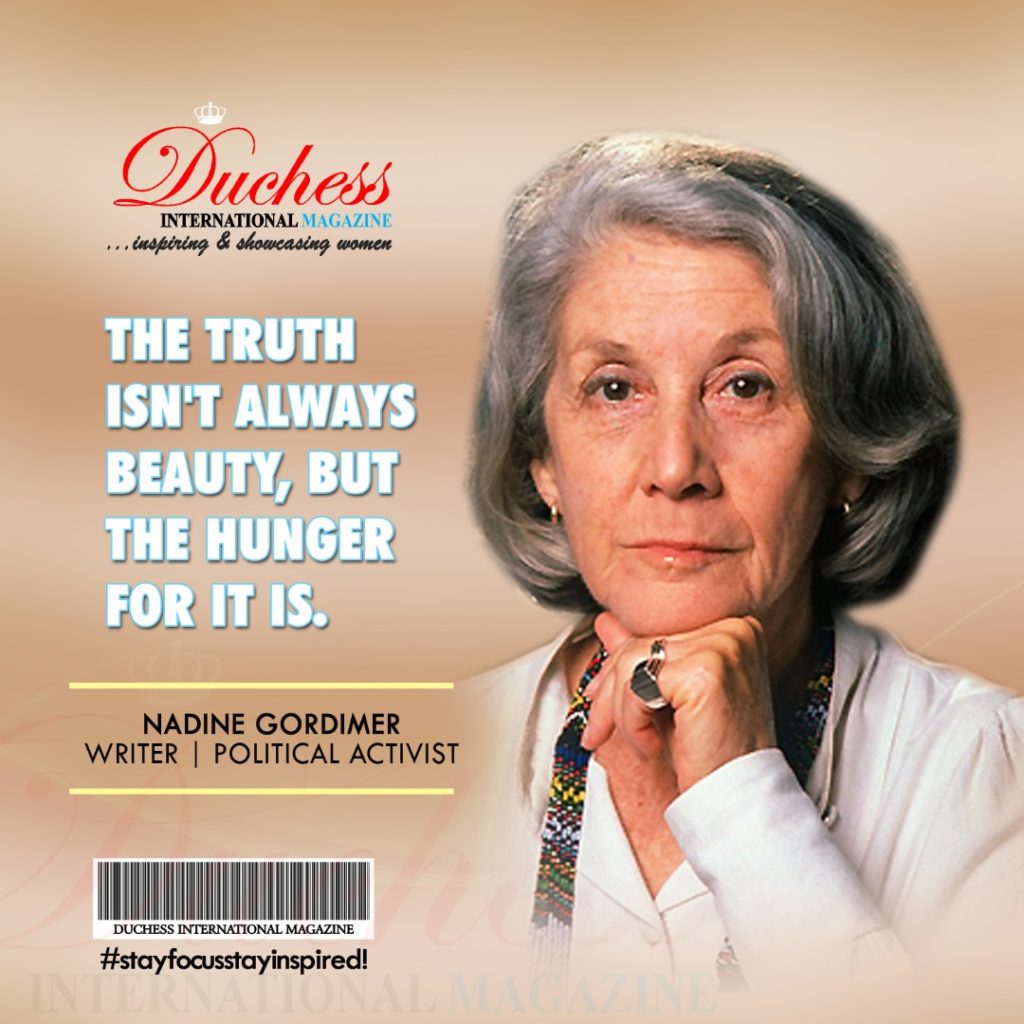
South African writer Nadine Gordimer, won the 1991 Nobel Prize in literature. The Nobel committee said that Gordimer “through her magnificent epic writing, in the words of Alfred Nobel, ‘has been of very great benefit to humanity.’” A daughter of White, middle-class Jewish immigrants, Gordimer developed an early interest in racial and economic inequality in South Africa and wrote about this injustice in her books. In an interview with the Paris Review in 1980, however, she took pains to minimize the role of politics in her work and underscore that the larger goal of a writer is “to try to make sense of life. I think that’s what writing is.” Her works include “The Soft Voice of the Serpent,” a collection of short stories; “The Lying Days”; “July’s People”; and her most recent, “No Time Like the Present.” Gordimer was active in the anti-Apartheid movement, joining the African National Congress after it was banned.
Wangari Maathai
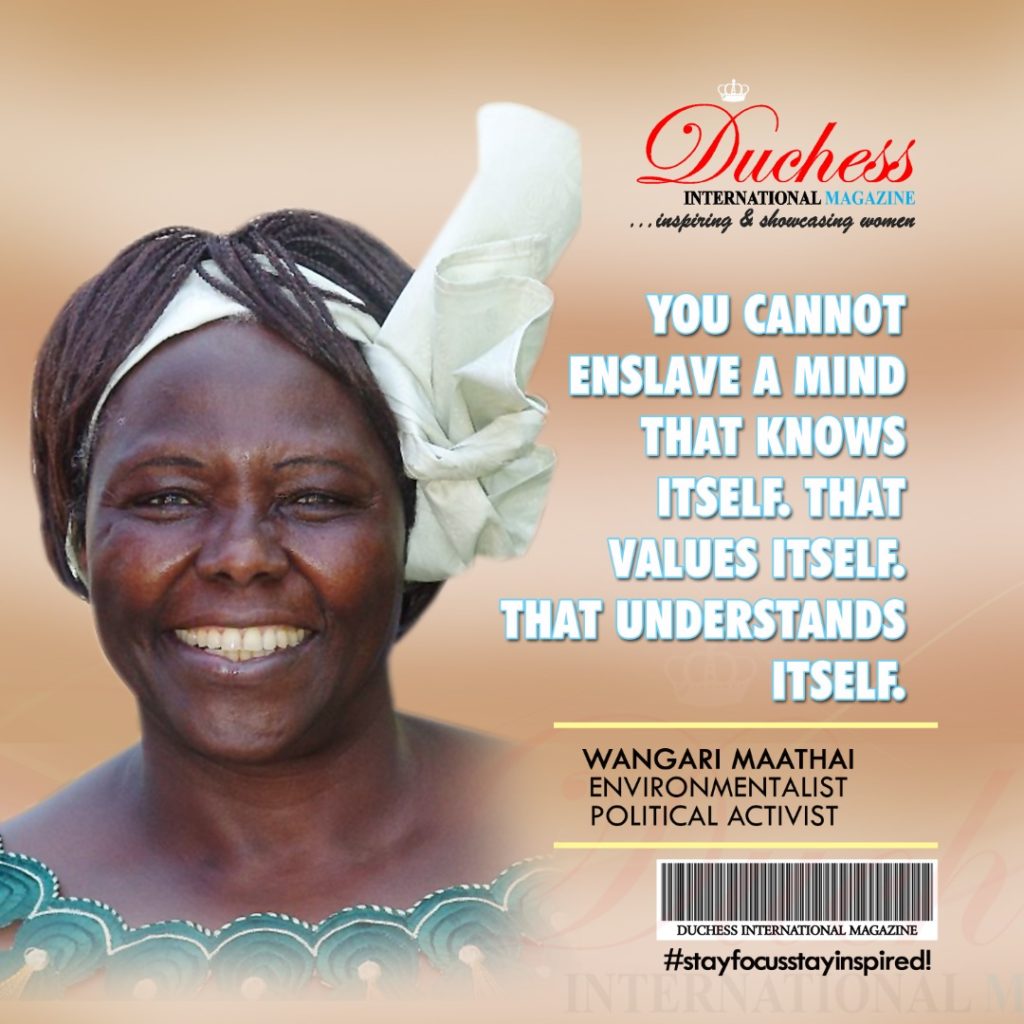
Born in Kenya, Maathai was internationally recognized for her struggle for democracy, human rights, and environmental conservation. She was the founder of the Green Belt Movement, a tree-planting initiative that focused on reducing poverty and conserving the environment for which she received the 2004 Nobel Peace Prize. Maathai was the first woman in East and Central Africa to earn a doctorate and have the title of associate professor. She spoke at the United Nations numerous times on behalf of women and to press for better management of the environment. She was elected to Kenya’s parliament, and later became assistant minister for the Environment, Natural Resources, and Wildlife.
Babatunde Olatunji
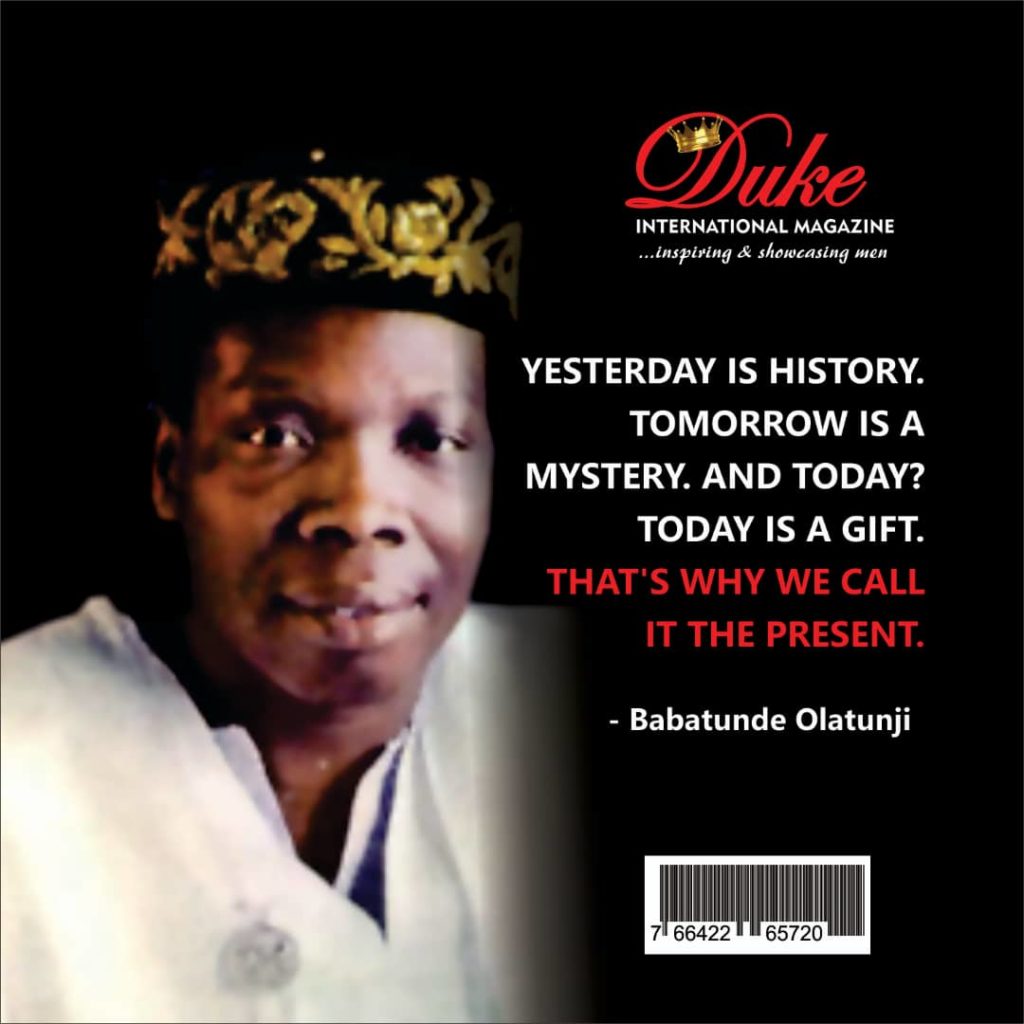
Fascinated by African music from a young age, Nigerian drummer, Babatunde Olatunji, helped pave the way for African music in the West. As a young man, he received a Rotary International Foundation scholarship that allowed him to attend Morehouse College in Atlanta, Georgia. At Morehouse, he organized a small group to play African music at school social events. After graduating as president of the student body, he studied public administration at New York University, where he started a small percussion group. Due to a lack of funds, he withdrew from the university and began to focus on music and give concerts, which led to him getting a job playing drums in a Radio City Music Hall production. It was not long before he was spotted by a Columbia Records producer and began releasing albums featuring traditional African music and hybrid compilations, winning him the enthusiastic acclaim of other jazz musicians. Olatunji was also a social activist, known for using the performance hall as his platform.
Chimamanda Adichie

Nigerian-born Chimamanda Ngozi-Adichie is a writer, and the author of the critically acclaimed “Americanah.” The book describes the affecting journey of a Nigerian woman who takes her chances in America as an emigrant, not because of poverty or hunger in her homeland, but to escape what she calls the “oppressive lethargy of choicelessness.” The book is also a penetrating discourse on what it means to be Black, and how views of identity differ between African Americans and American Africans. In addition to her brilliant storytelling skills, Adichie has stepped in to the realm of politics with her TED talk called “We Should All Be Feminists,” said to have been inspired by the Beyoncé song “Flawless” and various opinion pieces.
Akinwande “Wole” Soyinka
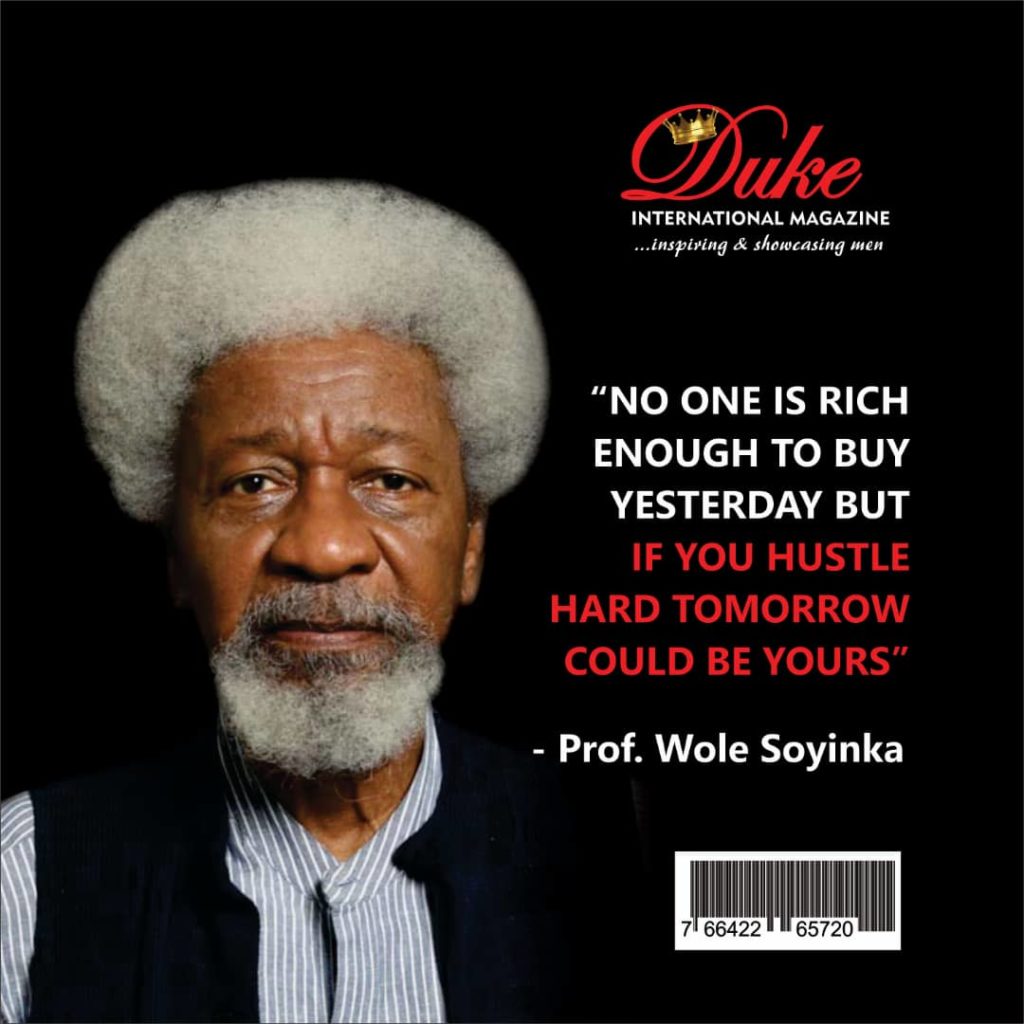
A Nigerian writer notable for his plays and poems. In 1986, Wole Soyinka was the first African to be awarded the Nobel Prize in literature. Soyinka bases his writing on the mythology of his own Yoruba tribe and connects his plays to traditional African theater, dance, and music. Though he primarily considers himself a playwright, he has written novels and several volumes of poetry. After earning his doctorate in the United Kingdom, he worked at the Royal Court Theatre in London, where he wrote and produced plays. He later returned to Nigeria to study African drama, start an acting company, and teach literature and drama at the country’s universities. For decades a strong proponent of Nigerian democracy, his works often focuses on his criticism of Nigeria’s many military dictators. He has been imprisoned and exiled, fleeing Nigeria in 1994 for the United States. Soyinka has taught at numerous U.S. universities, including Cornell, Emory, and Loyola Marymount.
Kwame Anthony Appiah

British-born, Ghanaian-American philosopher and writer, Appiah has a range of intellectual pursuits that includes the history of ideas in Africa, moral and political theory, the philosophy of language and mind, and fiction writing. His nonfiction book, “The Honor Code: How Moral Revolutions Happen,” explores how a sense of honor can both perpetuate an abhorrent practice like slavery and bring about its end. After growing up in Ghana, Appiah earned his doctorate in the United Kingdom before moving to the United States to teach philosophy at Harvard, Duke, Princeton, and other universities. He has also joined the faculty at New York University as a professor in the Department of Philosophy and the School of Law. He serves on the advisory boards of PEN American Center and the United Nations Democracy Fund and has been elected in to the American Philosophical Society and American Academy of Arts and Sciences.
Miriam Makeba

Also known as Mama Africa, Miriam Makeba was a Grammy Award-winning singer from South Africa. Her musical style ranged from jazz to Afro-soul to marabi, a type of popular music that originated in the Black townships of South Africa. The first artist from Africa to popularize African music around the world, Makeba was also a civil rights activist, and one of the most-outspoken opponents of the apartheid regime. As a result, the South African government revoked her passport in 1960 and three years later denied her the right to return to her country. After 30 years in exile, Makeba was able to return only when the system of Apartheid was dissolved. She died in 2008 of a heart attack, after performing her hit song “Pata Pata” at a concert in Italy organized to take a stand against the Camorra, a mafia-like organization.
Louis B. Leakey

The contributions by British paleoanthropologist, archaeologist, and zoologist, Louis B. Leakey to the knowledge of human evolutionary development in Africa are unparallelled, beginning with his discoveries in the Olduvai Gorge of Tanzania in 1931. Born in Kenya to British parents, Leakey created organizations that promote further research of archaeology in Africa as well as the protection of wildlife. The National Geographic Society has supported the work of Leakey, his wife, Mary, and their descendants in East Africa since 1959, when they discovered the 1.75-million-year-old skull of a humanlike creature they called “Zinjanthropus.” Leakey spent five decades digging up fossils of hominids and other animals in Africa’s Rift Valley, exponentially expanding our understanding of early humans. He believed that by studying today’s great apes, much could be learned about the behavior of early humans.


